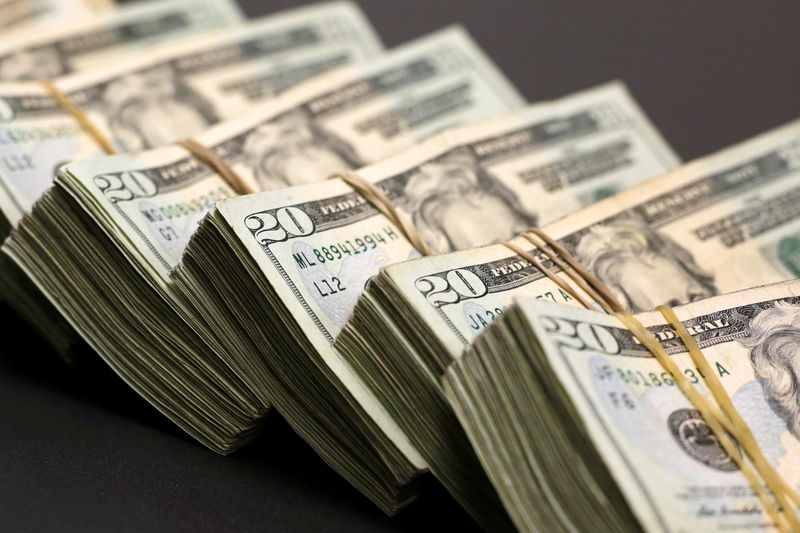By Peter Nurse
Investing.com - The U.S. dollar edged lower in early European trade Friday ahead of the crucial U.S. jobs report, but remains on course for a weekly gain after Federal Reserve Chair Jerome Powell's hawkish stance.
At 03:55 ET (07:55 GMT), the Dollar Index, which tracks the greenback against a basket of six other currencies, traded 0.2% lower at 112.625, falling back from the near two-week high of 113.15 reached overnight.
That said, the index was on track for a weekly gain of just under 2%, its largest since September.
The dollar soared earlier this week after Powell dashed hopes that the U.S. central bank would soon start reducing the pace of its interest rate increases, saying it was "very premature" to discuss when the Fed might pause its increases in the aftermath of another 75 basis-point hike.
Traders have subsequently reined in some of these gains ahead of the release of key U.S. jobs data later Friday, with economists expecting nonfarm payrolls to have increased by 200,000 jobs in October. Data portraying an even more healthy labor market would largely cement another substantial interest rate hike in December.
EUR/USD rose 0.1% to 0.9758, rebounding to a degree after the pair fell to its lowest level in nearly two weeks overnight.
However, these gains are very tentative after data released Friday showed that German factory orders fell 4.0% on the month in September, their sixth decline in the last seven months and the biggest decline since March.
This suggests Germany, the Eurozone’s biggest economy and main growth driver, is lurching closer to recession.
Final composite and services PMI data for the region are due later in the session, and are expected to show both sectors firmly in contraction territory.
GBP/USD rose 0.5% to 1.1224, rebounding from the previous session’s losses even as the Bank of England raised interest rates by 75 basis points, the largest increase since 1989.
Sterling was headed for a weekly loss of more than 3%, the largest since September's market turmoil triggered by the disastrous ‘mini-Budget’, after the U.K. central bank offered up a pretty sobering assessment of Britain's growth outlook, suggesting the country’s economy was already in recession, which could last two years.
USD/JPY traded 0.3% lower at 147.88, with the yen helped by data showing that Japan’s services sector grew at its fastest pace in four months in October, helped by the withdrawal of most COVID-related curbs.
That said, the yen is on course to post a losing week as the widening gulf between Japanese and U.S. interest rates kept the Japanese currency under pressure.
AUD/USD rose 0.8% to 0.6336, recovering from a near two-week low, while USD/CNY fell 0.4% to 7.2702, retreating from the pair’s near 15-year high seen earlier in the week on fresh rumors that the country’s restrictive ‘zero-COVID’ stance could soon be a thing of the past.
